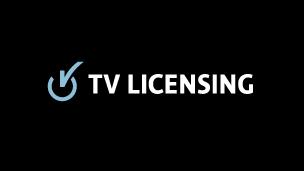TV licence prosecutions hit new peak
- Published

Up 1,000 people a day are caught watching TV without a licence
More than one in 10 criminal prosecutions in 2012 were for non-payment of the BBC licence fee.
A total of 181,880 people were summoned to appear at magistrates' courts in England for the offence last year.
The figures, revealed in the House Of Lords, prompted some critics to accuse the BBC of "clogging up" the courts.
But the TV Licensing authority said most cases were dealt with in "bulk sessions" that took up a "small proportion" of court time.
The authority is contracted by the BBC to collect and enforce the fee, which is £145.50 for a colour television.
Most people who own a television set, or who stream live broadcasts through their computer, must pay the annual charge.
Those who do not face a fine of up to £1,000. Anyone who refuses, or is unable, to pay the fine could face prison.
The number of people caught watching TV without a licence has remained steady since 2010, at about 400,000.
However, the number of prosecutions for evasion has risen from 164,444 in 2010 to 181,880 in 2012, Ministry of Justice figures show. With magistrates handling 1.48m cases in 2012, licence fee evasion accounts for 12% of their workload.
Two-thirds of those prosecuted were women - believed to be because they are more likely to be at home when inspectors visit.
About 15% of the cases, a total of 26,745, were unsuccessful last year.
Lord Pearson, leader of the UK Independence Party in the House Of Lords, called the figures "outrageous".
"I believe that non-payment should be treated in the way that parking tickets are," said the peer, who is sponsoring a bill to decriminalise non-payment of the licence fee.
"It is absurd that the courts are being clogged up by such a minor offence," he told the Telegraph, external.
The figures came to light after Lord Laird submitted a written question to Parliament.
A TV Licensing spokesman said: "We always prefer people buy a licence so we work with money advice organisations to inform the public of the many payment methods available, including small weekly cash payments.
"However, we have a duty to enforce the law on behalf of the 95% of people who pay. TV Licence evasion cases take up a small proportion of court time as they are dealt with in bulk in dedicated sessions and very few people attend court."
- Published18 June 2013
- Published10 January 2013
- Published20 October 2010